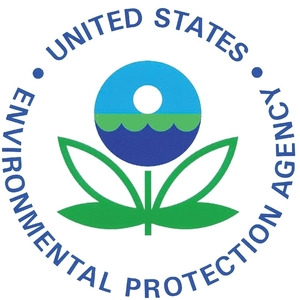Chemoil to retire more than $71M in RIN credits under settlement

October 3, 2016
BY U.S. EPA
The U.S. EPA and the U.S. Department of Justice recently announced a settlement with Chemoil Corp. that requires the company to retire 65 million renewable fuel credits to resolve alleged violations of the renewable fuel standard (RFS) program. The current market value of the credits—along with an additional 7.7 million renewable identification numbers (RINs) already retired by Chemoil in the lead up to this settlement—is more than $71 million. Chemoil will also pay a $27 million civil penalty under the settlement, the largest in the history of the EPA’s fuel programs.
EPA and the Department of Justice allege that Chemoil exported at least 48.5 million gallons of biodiesel from 2011 to 2013, but failed to retire the more than 72 million RINs that were generated for the exported fuel. RINs are credits created when a company produces or imports renewable fuel and can be traded or sold to refiners and fuel importers or exporters to help them comply with the RFS program requirements.
The RFS program requires exporters to retire RINs for renewable fuel like biodiesel, because the fuel exported is no longer available for blending into the U.S. fossil fuel supply and, for that reason, cannot be used to meet the renewable fuel volume mandate established by Congress. If exporters fail to retire the appropriate number and type of RINs associated with the exported fuel, as the U.S. alleges happened here, it artificially inflates the volume of renewable fuel available for blending in this country and the number of RINs available to meet the renewable fuel volume mandate. Ensuring exporters comply with the regulations for RIN retirement is critical to the proper functioning and integrity of the RFS program.
Advertisement
“This settlement delivers on the greenhouse gas emissions reduction goals that Congress envisioned for the renewable fuel standard,” said Cynthia Giles, assistant administrator for EPA’s Office of Enforcement and Compliance Assurance. “It’s vital that companies retire renewable fuel credits when exporting fuel abroad. Upholding this requirement is a key way EPA is working to maintain program integrity and a level playing field for companies that follow the law.”
“Congress adopted the renewable fuel standard program to achieve significant greenhouse gas emissions reductions, reduce the nation’s dependence on foreign oil, and grow our domestic renewable energy industry,” said Assistant Attorney for the Environment and Natural Resources Division, John C. Cruden. “By ensuring a level playing field within the industry through vigorous compliance monitoring and enforcement, we help ensure that these important Congressional goals are met.”
Advertisement
EPA discovered the alleged violations as a result of tips from RFS program participants.
EPA is responsible for developing and implementing regulations to ensure that transportation fuel sold in the U.S. contains a minimum volume of renewable fuel. The RFS program created under the Energy Policy Act of 2005 was developed in collaboration with refiners, renewable fuel producers and many other stakeholders. It was expanded and strengthened under the Energy Independence and Security Act of 2007, which was designed to encourage the blending of renewable fuels into our nation’s motor vehicle fuel supply to reduce the nation's dependence on foreign oil, help grow the nation’s renewable energy industry and achieve greenhouse gas reductions.
Chemoil is based in San Francisco and sells marine, aviation, diesel, renewable fuels and residual oil products.
The proposed settlement, lodged Sept. 29 in the U.S. District Court for the Northern District of California, is subject to a 30-day public comment period and final court approval.
Related Stories
The European Commission on July 28 approved a €36 million ($41.07 million) Danish state aid scheme designed to encourage airlines operating in Denmark to use sustainable aviation fuel (SAF) on domestic routes.
The abrupt closure announcement by Biox Corp. is the latest example of a failure to secure Canada's domestic energy supply, says Unifor. The Canadian energy union is advocating for simply regulatory changes that could help restart the facility.
The U.S. EPA on July 29 released a proposed rule to repeal the agency’s 2009 Endangerment Finding, which forms the legal basis for the agency’s GHG regulations. The proposal also aims to repeal all GHG regulations for motor vehicles and engines.
While final IRS guidance is still pending, the foundation of the 45Z program is well defined. Clean fuel producers should no longer be waiting; they can now move forward with critical planning and preparation, according to EcoEngineers.
The IRS on July 21 published a notice announcing the 2025 calendar-year inflation adjustment factor for the Section 45Z clen fuel production credit. The resulting adjustment boosts maximum the value of the credit by approximately 6%.
Upcoming Events










